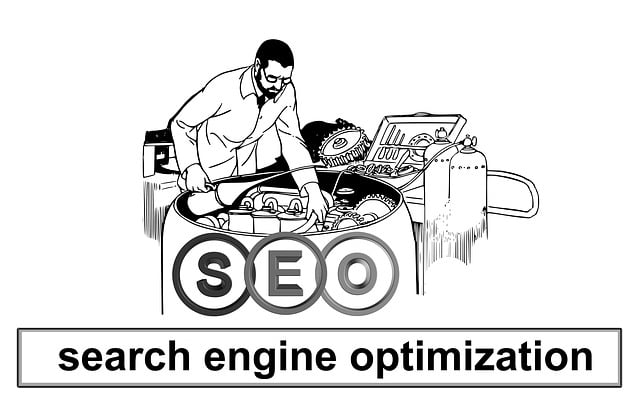Small Business SEO Training empowers enterprises to thrive online through strategic website optimization for search engines like Google. It covers keyword research, on-page optimization (including meta tags, headings, and image optimization), and creating high-quality content to boost visibility and attract organic customers. The training emphasizes understanding target audiences, leveraging free and premium tools for analysis, mastering on-page SEO techniques, building high-quality backlinks through off-page SEO, and measuring performance using analytics tools. In today's digital era, this training is crucial for small businesses aiming to stay competitive online by adapting to algorithm changes, mobile optimization, and voice search trends.
Small businesses looking to thrive online need an effective strategy, and that’s where SEO (Search Engine Optimization) comes in. This article provides a comprehensive guide to mastering Small Business SEO training. We’ll explore essential aspects from understanding your target audience and keywords to leveraging free and premium tools for on-page and off-page optimization. By staying updated with recent trends, small businesses can enhance their online visibility, attract their ideal customers, and drive sustainable growth.
Understanding Small Business SEO: Basics and Importance

Small Business SEO, or Search Engine Optimization, is a powerful strategy for any enterprise aiming to thrive online. It involves optimizing websites and content to improve their visibility on search engines like Google, Bing, or Yahoo. For small businesses, this is crucial as it allows them to compete with larger corporations by increasing their online presence and attracting potential customers organically.
The basics of Small Business SEO Training include understanding keyword research, on-page optimization techniques, and creating high-quality, relevant content. Keywords are the building blocks of any successful SEO strategy; they help search engines index and rank websites. By integrating these keywords naturally into content, small businesses can enhance their search engine rankings, making them more discoverable to their target audience. Effective training will also cover how to optimize meta tags, headings, and images to further boost online visibility.
Identifying Target Audience and Keywords for Optimal SEO

Identifying your target audience is a fundamental step in any successful SEO strategy, especially for small businesses aiming to make a significant impact online. Through comprehensive Small Business SEO Training, business owners can learn to understand their ideal customers’ demographics, interests, and pain points. This knowledge allows them to create content that resonates with their audience, boosting engagement and conversion rates. By analyzing competitor strategies and market trends, businesses can uncover valuable keywords and phrases that potential clients use when searching for products or services related to theirs.
Keywords are the building blocks of effective SEO. Optimizing your website’s content around relevant keywords ensures it appears in search engine results when users type in similar queries. Small Business SEO Training provides insights into keyword research techniques, including using tools to analyze search volume and competition. This enables business owners to select high-value keywords that drive targeted traffic, ultimately increasing the chances of attracting and converting their ideal customers.
Utilizing Free and Premium SEO Tools Effectively

Many small businesses often wonder where to begin with their SEO strategy, and the answer lies in understanding how to utilize both free and premium SEO tools effectively. Free tools like Google Search Console and Google Analytics are invaluable for beginners, offering insights into keyword performance, site traffic, and potential issues. These tools provide a solid foundation for any Small Business SEO Training by helping entrepreneurs identify target keywords, monitor search rankings, and understand user behavior on their website.
Once businesses have grasped the basics, premium SEO tools can take their online presence to the next level. Tools like Ahrefs, SEMrush, or Moz offer advanced features such as backlink analysis, keyword research with volume data, and technical SEO audits. Investing in these platforms allows small business owners to gain a competitive edge, optimize content for search engines, and make data-driven decisions to enhance their online visibility and attract a larger audience.
On-Page SEO Optimization Techniques for Better Rankings

Small business owners often wonder how they can compete with larger corporations in search engine rankings, but the answer lies in mastering On-Page SEO Optimization Techniques. This involves optimizing individual web pages to rank higher and earn more relevant traffic from search engines. One crucial aspect is keyword research, where business owners identify the terms customers use when searching for their products or services. Incorporating these keywords into essential elements like page titles, headings, meta descriptions, and content itself is vital for improving visibility.
Additionally, creating high-quality, engaging content tailored to the target audience’s needs can significantly boost rankings. This includes optimizing images with alt tags, ensuring page load speeds are fast, and implementing structured data markup. Small Business SEO Training often emphasizes these techniques as they provide a solid foundation for any online marketing strategy, allowing businesses to compete effectively in their niche and attract more potential customers through organic search results.
Off-Page SEO Strategies: Building Quality Backlinks

Off-page SEO focuses on strategies outside a small business’s direct control, primarily building quality backlinks from reputable sources. This process involves reaching out to influential websites in your niche and pitching valuable content or collaborations that earn you a link back to your site. It’s crucial for small businesses to invest in SEO training to understand this aspect effectively, as it boosts their online visibility and search engine rankings.
Quality backlinks act as votes of confidence from other sites, telling search engines your business provides reliable information. This strategy requires a strategic approach, including guest blogging on popular industry blogs, creating shareable infographics or research studies, and securing mentions in local or niche news publications. By consistently implementing these off-page SEO tactics, small businesses can significantly enhance their online presence and attract more organic traffic.
Measuring and Analyzing SEO Performance with Key Metrics

Measuring and analyzing SEO performance is a vital component of any successful small business strategy. By tracking key metrics, entrepreneurs can gain invaluable insights into their online visibility and organic growth. These metrics go beyond simple keyword rankings; they include website traffic analysis, conversion rates, click-through rates (CTRs), and bounce rates. Small Business SEO Training equips owners with the knowledge to interpret these figures, allowing them to make data-driven decisions that enhance search engine optimization efforts.
For instance, understanding user behavior through analytics tools helps identify high-performing content and areas needing improvement. This information is crucial for optimizing website structure, refining meta tags, and creating more engaging content that resonates with the target audience. Moreover, monitoring these metrics over time enables small businesses to assess the effectiveness of their SEO strategies and make necessary adjustments to stay ahead in a competitive online landscape.
Staying Updated: Recent Trends in Small Business SEO

In today’s digital landscape, staying updated with the latest trends in Small Business SEO is more than just an advantage; it’s a necessity for thriving online. Recent shifts in search engine algorithms have emphasized the importance of user experience and high-quality content, pushing small businesses to adapt their strategies. This includes a growing focus on mobile optimization, as a significant portion of searches now originate from smartphones and tablets. Understanding these trends is crucial for effective Small Business SEO Training, ensuring that local enterprises aren’t left behind in the digital race.
Small businesses also need to pay close attention to voice search optimization, as virtual assistants like Siri and Alexa are becoming more prevalent. This shift towards conversational queries requires a change in content strategy, focusing on natural language keywords and incorporating them into website copy, blogs, and product descriptions. By keeping pace with these developments, small business owners can ensure their online presence remains relevant, accessible, and visible to potential customers.
